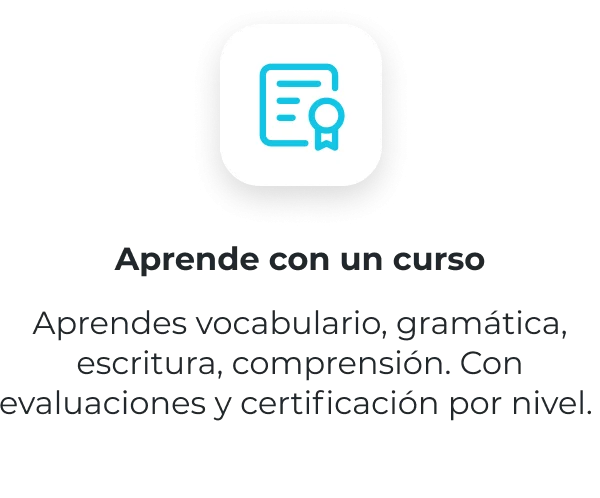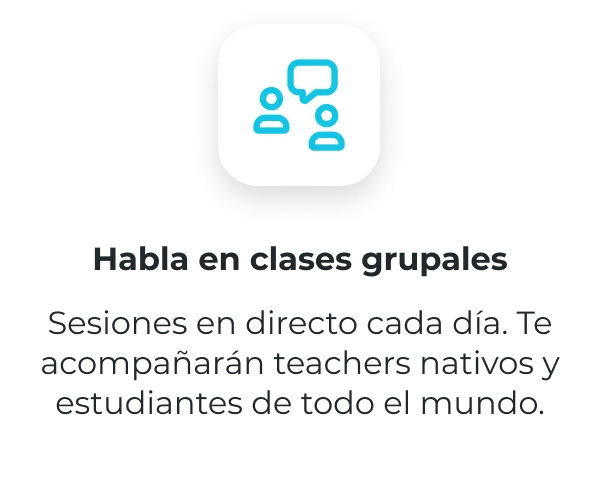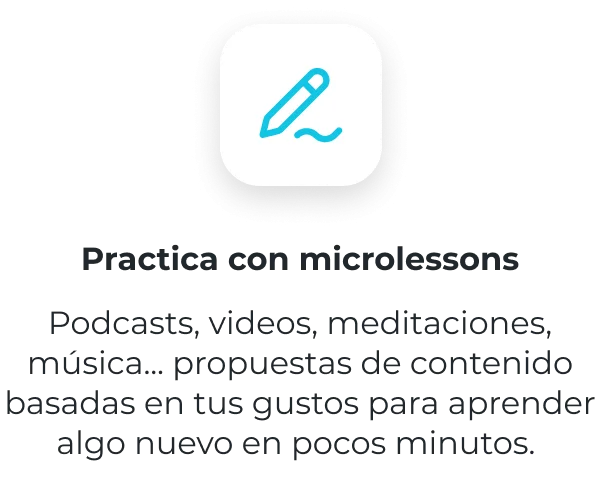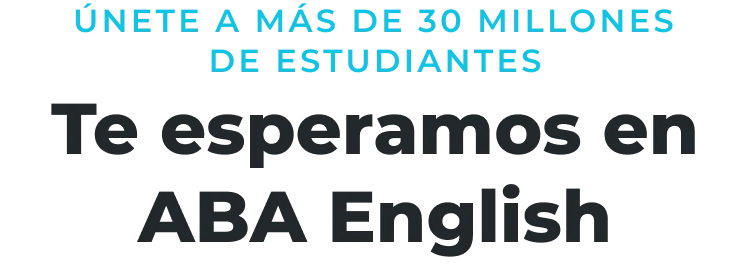Futuro perfecto simple en inglés
Aprende cómo se forma el future perfect en inglés, cuándo usarlo y practícalo con ejercicios. Regístrate gratis en ABA English y disfruta cada día de una nueva video clase de gramática gratuita.
¿Cuál es el futuro perfecto en inglés? ¿Cuáles son sus reglas gramáticas? ¿Cuándo debes usarlo? En este artículo respondemos todas estas preguntas y, además, te proponemos ejemplos y ejercicios para que puedas afianzar tus conocimientos. ¡Empecemos!
¿Qué es el future perfect y qué usos tiene?
El future perfect es un tiempo verbal que se usa para hablar de algo que sucederá antes de un momento específico en el futuro, es decir, antes de que suceda otra acción.
Ejemplos:
- 6:00 PM doesn’t work, I will have delivered the homework by then. (A las 6:00 PM no es posible, a esa hora ya habré entregado la tarea.)
- When you get home tomorrow evening, I’ll have finished preparing dinner. (Cuando llegues mañana por la noche a casa, habré terminado de preparar la cena.)
+30 MILLONES DE ESTUDIANTES
Únete a la academia digital de inglés
más grande del mundo y aprende inglés
¿Cómo se forma el futuro perfecto en inglés?
La estructura del future perfect está compuesta por dos elementos. Por un lado, el verbo to have en futuro simple, y por el otro, el pasado participio del verbo principal.
Future perfect en afirmativa
Para las oraciones afirmativas en futuro perfecto simple, la estructura gramatical es bastante sencilla. Es importante que recuerdes los dos elementos que definen este tiempo verbal: will have y el pasado participio. Presta atención a la estructura:
Sujeto + will have + verbo en pasado participio + complemento.
Ejemplos:
- I’ll have finished cleaning the house by the time they arrive. (Habré terminado de limpiar la casa antes de que lleguen.)
- They will have completed the research by 9 p.m. (Habrán terminado la investigación para las 9 p.m.)
Futuro perfecto inglés en negativa
Para las oraciones negativas en future perfect, simplemente debes agregar la partícula “not” después del verbo auxiliar will. Además, recuerda que también es posible utilizar la contracción “won’t”.
Sujeto + will + not + have + verbo en pasado participio + complemento.
Ejemplos:
- Greg will not have eaten lunch before the English lesson starts this evening. (Greg no habrá almorzado antes de que empiece la clase de inglés esta tarde.)
- She’ll not have finished painting the room before the baby arrives. (Ella no habrá terminado de pintar la habitación antes de que llegue el bebé.)
Oraciones interrogativas en future perfect
Ahora vemos cómo formular una pregunta usando el futuro perfecto inglés. Simplemente debes reposicionar los elementos gramaticales de la estructura. Presta atención al orden de cada uno de los elementos.
Will + sujeto + have + verbo en pasado participio + complemento.
Ejemplos:
- Will you have finished cleaning the office when she arrives? (¿Habrás terminado de limpiar la oficina cuando ella llegue?
- Will they have brushed the dogs before the show opening? (¿Habrán cepillado a los perros antes de la apertura de la exposición?)
¿Conoces tu nivel
de inglés?
Haz un test ahora.
Regístrate en nuestra página y accede gratis al test de nivel. En pocos minutos conocerás tu nivel y podrás seguir avanzando con el curso.
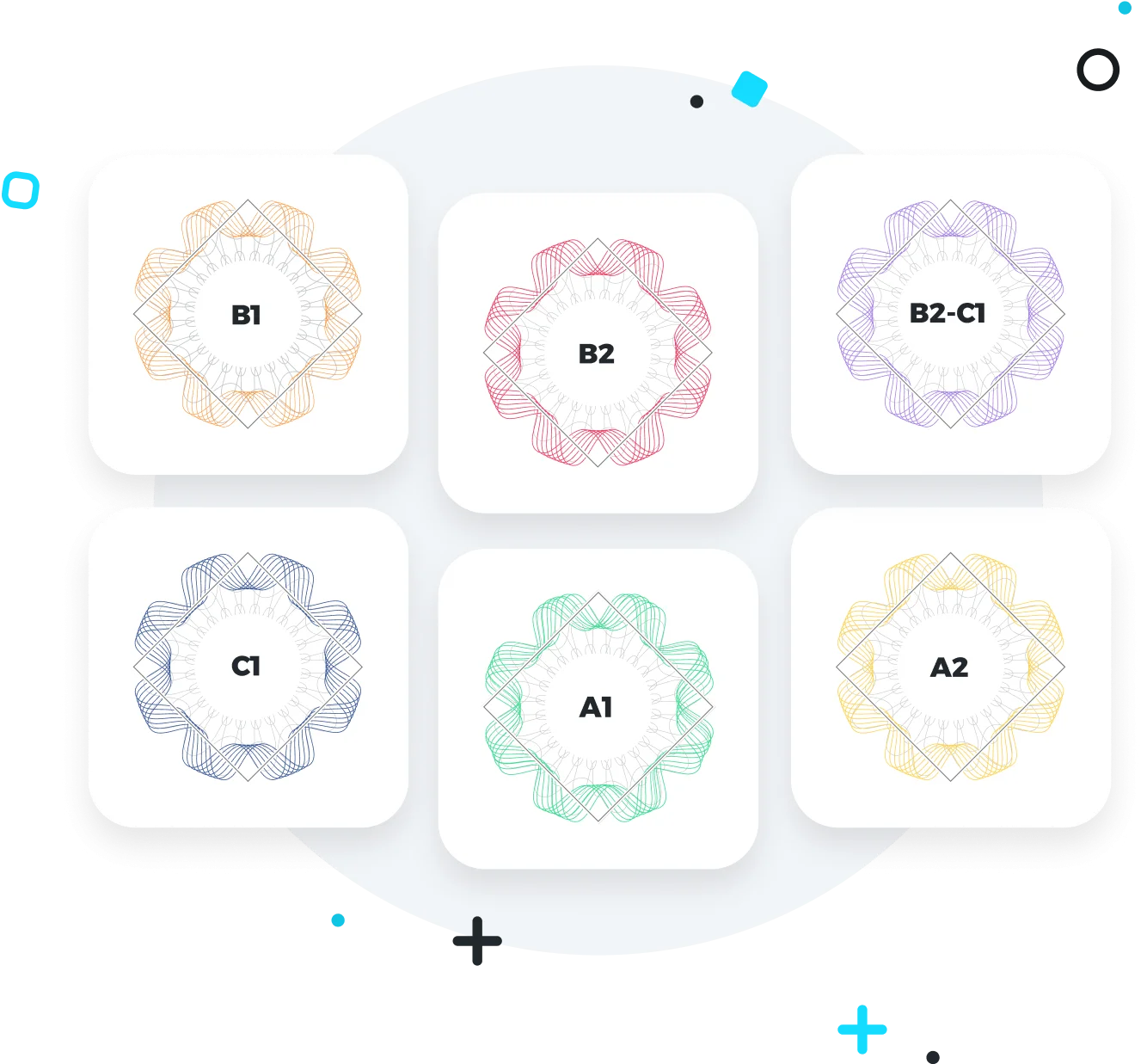
Diferencia entre future perfect simple y future continuous
Como ya hemos visto, el future perfect simple en inglés se usa para referirse a una acción completada en el futuro. Por su parte, el future continuous en inglés se usa para hablar de acciones que sucederán en el futuro y tendrán un cierto tiempo de duración.
A continuación te proponemos las dos estructuras afirmativas para que puedas verificar cuáles son las diferencias:
| Future perfect | Future continuous |
| Sujeto + will have + verbo en pasado participio + complemento | Sujeto + will/shall + be + verbo principal –ing + complemento |
Ejemplos en future perfect
- I will have started this book by next week. (Habré empezado este libro para la próxima semana.)
- We will not have done our job. (No habremos terminado nuestro trabajo.)
- What will you have done? (¿Qué habrías hecho tú?)
- She will have learned English by the end of the year. (Habrá aprendido inglés a finales de año.)
- They will not have served the dinner before their guests arrive. (No habrán servido la cena antes de que lleguen sus invitados.)
- Will you have booked the flight before the promotion is over? (¿Habrás reservado el vuelo antes de que termine la promoción?)
Ejercicios de futuro perfecto
Ejercicios de future perfect simple afirmativo
Traduce las siguientes oraciones afirmativas en futuro perfecto.
- Él habrá terminado la escuela para entonces.
- Ella habrá llegado allí a las 3:00pm.
- Habré estado en París por tres meses el 1 de mayo.
- Para cuando leas esto, yo ya me habré ido.
- Habrán terminado su examen a esta hora la próxima semana.
Respuestas:
- He will have finished his studies by then.
- She will have gotten there at 3:00 PM.
- On the 1st of May, I will have been in Paris for 3 months.
- When you read this, I will have been gone.
- At this hour next week, they will have finished their exam.
Ejercicios de future perfect negativo
Conjuga los verbos que se encuentran entre paréntesis para formar oraciones negativas en future perfect.
1. The baby ______________ (not play) with the toys.
2. You ______________ (not talk) talked to her.
3. She ______________ (not cut) his hair.
4. You ______________ (not arrive) home by then.
5. They ______________ (not eat) the food.
Respuestas:
- will not have played
- will not have talked
- will not have cut
- will not have arrived
- will not have eaten
Ejercicios interrogativos de futuro perfecto
Escoge la opción correcta para formar preguntas en future perfect.
1. What __________in that case?
a. would I done
b. shall I have do
c. will I have done
2. Will he __________the cell phone?
a. had bought
b. have bought
c. have buyed
3. Will we __________ the new season by June?
a. have seen
b. had seen
c. would see
4. Will you____________ the job by next week?
a. would have finish
b. have finished
c. had finish
5. How will they ___________ the store?
a. had find
b. have find
c. have found
Respuestas:
1.C, 2.B, 3.A, 4.B, 5.C
Otros enlaces de tu interés:


